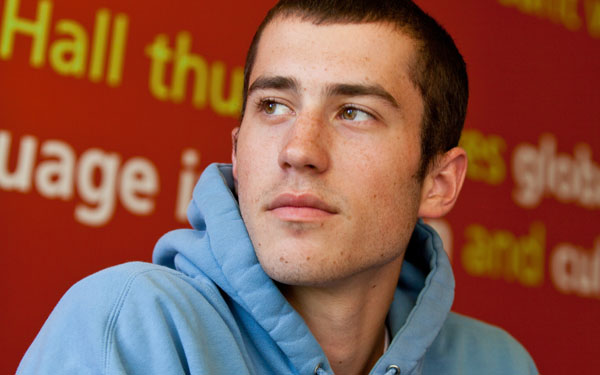Page 139 • (1,966 results in 0.066 seconds)
-
Transgender Day of Remembrance Event was held April 10th, 2016 – Sex + brought Author Lisa Wade to campus to talk about her newest book, American Hookup: The new Culture of Sex on Campus March 17, 2016 – The Women’s Center changed its name to the Center for Gender Equity! Spring 2016 – Tolu Taiwo hired as the first Outreach and Prevention Coordinator March 9th, 2016 – Dawn Cuthbertson hired as the 2nd Gender-based Violence Advocate Spring 2015 – Jennifer Warwick asked to serve on CDC (Centers for Disease
-
Multi-Factor Authentication with Duo Security In order to better protect your ePass account and its access to your personal and institutional data, Information & Technology Services provides an additional security feature for PLU ePass accounts called multi-factor authentication. Many PLU web-based services and accounts that may have access to sensitive data are enabled to use multi-factor authentication. This means that in addition to providing your ePass username and password at the time of
-

. This is not uncommon for IHON classes, many of which are discussion-based, as (vs. lecture-based), to encourage dialogue. It allows students like Schroeder to really get a chance to dig deep into the subject matter and explore it – from all sides. “IHON challenges the way I interact in my academic environment, my social environment,” Schroeder said. “IHON challenges me to think in a different manner, and that affects everything else I do.” There’s another benefit. That same lively discussion means
-
Clinical Supervision – Faculty Role Purpose: Clinical experiences are an integral component of nursing education at all levels. This policy will provide clarity and consistency in clinical education at Pacific Lutheran University (PLU) School of Nursing (SON). Policy: Clinical hours in the PLU SON nursing programs (BSN, MSN, DNP) are based on a ratio of 1 semester credit = 42 hours of clinical during the semester. Faculty will facilitate students meeting the clinical hour requirement for their
-
patient care experiences in preparation for semi- autonomous and independent practice, based on the level of nursing preparation. This is often done in collaboration with the patient and among other health care providers including physicians, nurses, and other health professionals. Therefore, intra- and inter-professional communication that is respectful, collegial, civil, and responsible is a requirement of every student enrolled in the program. Motor Skills A student should possess motor function
-
, acquire skills, critically think and develop judgment through patient care experiences in preparation for semi-autonomous and independent practice, based on the level of nursing preparation. This is often done in collaboration with the patient and among other health care providers including physicians, nurses, and other health professionals. Therefore, intra- and inter-professional communication that is respectful, collegial, civil, and responsible is a requirement of every student enrolled in the
-
information regarding licensing for the State of Washington, potential students are encouraged to look at the Washington Department of Health documents. Nurses must be educated to assimilate clinical, classroom, and laboratory knowledge, acquire skills, critically think and develop judgement through patient care experiences in preparation for semi-autonomous and independent practice, based on the level of nursing preparation. This is often done in collaboration with the patient and among other health
-
and go to night school and during the day I would work at a teriyaki restaurant,” Kim said. “Of course getting paid under the table.” But one of Kim’s high school track friends was going to PLU and told him about the merit-based scholarship opportunities he could qualify for. So Kim applied and took a Greyhound from Portland for Presidential Scholarships Weekend to interview for one of PLU’s five full-tuition Regents’ Scholarships. He was selected for the prestigious award. “The interview went
-
, the US, and Latin America, from the early 20th century until today: from George Orwell’s literary ethnographies of service and industrial workers during the Great Depression to Diego Rivera’s murals of Detroit autoworkers to Arthur Miller’s Death of a Salesman to Paul Schroeder’s 1978 film Blue Collar.IHON 258: 1968: A Year of Revolution and ReactionThis course is an in-depth, inter-disciplinary, and multi-media examination of the year 1968. Global in scope, it is based on written accounts by
-
the Indigenous Wellness Research Institute (http://health.iwri.org ). She received her Dr.PH from UC Berkeley School of Public Health in 1997. Bonnie teaches graduate courses in Community Based Participatory Research (CBPR), and Mindfulness. She has worked in public health research, evaluation and education among Tribes, Native Organizations and other communities of color for over 35 years. Dr. Duran was the Principal Investigator of 2 NIH-funded research projects in “Indian Country.” Working with
Do you have any feedback for us? If so, feel free to use our Feedback Form.


